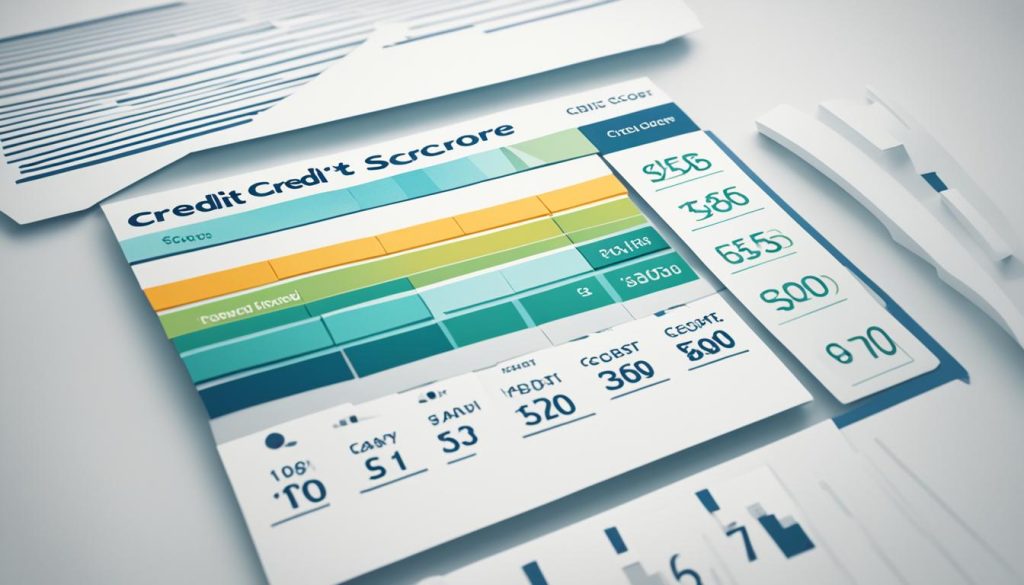If you’re wondering how to improve your credit score, you’ve come to the right place. Your credit score is a crucial element that lenders use to assess your creditworthiness. A higher credit score can increase your chances of obtaining credit at favorable rates, whether it’s a credit card, mortgage, or loan.
How to Improve Credit Score?
To improve your credit score, follow these credit score improvement tips:
- Register on the electoral roll: Being registered on the electoral roll at your current address helps establish your identity and stability, which can positively impact your credit score.
- Build your credit history: If you have a limited credit history or are new to the UK, consider opening accounts that report to the credit bureaus. This will help establish a positive credit history.
- Make regular payments on time: Paying your bills and debts on time is crucial for demonstrating responsible borrowing behavior.
- Keep your credit utilization low: Using only a portion of your available credit shows that you manage your debts efficiently. Aim to keep your credit utilization below 30%.
- Connect your current account to your credit report: Linking your current account to your credit report can potentially boost your credit score instantly.
- Check your credit report for errors: Regularly review your credit report and report any mistakes to the credit provider. Errors on your report can negatively impact your credit score.
- Monitor your credit file: Stay vigilant for any signs of fraudulent activity on your credit file that could harm your credit score.
By implementing these strategies, you can take steps towards improving your credit score and enhancing your financial future.
Tips for Managing Credit Responsibly
Managing credit responsibly is essential for improving your credit score. By following these strategies and credit score enhancement techniques, you can raise your credit score fast and boost your overall creditworthiness.
1. Make regular payments on time: One of the most effective ways to improve your credit score is by consistently making payments on time. This demonstrates to lenders that you are reliable and responsible with your credit obligations.
2. Keep credit utilization low: Maintaining a low credit utilization ratio can have a positive impact on your credit score. Try to keep your credit utilization below 30% of your available credit limit. This shows that you are using credit responsibly and not relying heavily on borrowed funds.
3. Connect your current account to your credit report: Linking your current account to your credit report can potentially boost your credit score. Lenders will be able to see examples of your responsible financial behavior, such as regular income and consistent savings.
4. Check your credit report regularly: It’s important to review your credit report regularly for any errors or discrepancies. Report any mistakes to the credit provider promptly, as they can impact your credit score negatively.
5. Be cautious when applying for new credit: Multiple credit applications within a short period can lower your credit score. Only apply for credit when necessary and consider the impact on your credit profile before submitting an application.
Example of a Credit Utilization Table:
| Current Credit Card | Credit Limit | Balance | Credit Utilization Ratio |
|---|---|---|---|
| Card A | £10,000 | £2,500 | 25% |
| Card B | £5,000 | £1,000 | 20% |
| Card C | £2,000 | £500 | 25% |
By managing your credit responsibly and incorporating these credit score enhancement strategies, you can improve your creditworthiness and increase your chances of obtaining credit at favorable rates.

Strategies for Building Credit History
Building a strong credit history is crucial for improving your credit score. If you have little or no credit history, it can be challenging for lenders to assess your creditworthiness. To build your credit history, consider adopting the following credit score management techniques:
- Open accounts that report to the credit bureaus: This could include credit-builder loans, secured cards, or becoming an authorized user on someone else’s credit card. By having accounts that report your payment history, you can demonstrate your ability to manage credit responsibly.
- Keep old accounts open and show a long credit history: Most credit scoring models reward individuals with long-standing, mature credit accounts. It’s beneficial to maintain older accounts as they contribute to the length of your credit history. This demonstrates stability and responsible credit management.
- Make regular payments on time: Consistently paying off your debts on time is one of the most effective steps to increase your credit score. Timely payments indicate to lenders that you are responsible and capable of managing credit effectively.
- Avoid moving frequently: Lenders value stability, so frequent changes in address can negatively impact your creditworthiness. Aim to maintain a stable living situation to establish a sense of reliability.
Consider utilizing credit builder cards to help improve your credit rating. These cards typically have low spending limits and high interest rates, so it’s important to use them responsibly and make timely payments.
Implementing these strategies will enhance your credit score by establishing a solid credit history, improving your creditworthiness in the eyes of lenders.

Factors That Influence Your Credit Score
Numerous factors contribute to the calculation of your credit score. These factors include your payment history, credit utilization, length of credit history, new credit accounts, and types of credit used.
Making regular payments on time is crucial for maintaining a good credit score. This demonstrates to lenders that you are responsible and reliable in managing your financial obligations. By consistently paying your bills on time, you can show lenders that you are a low-risk borrower.
Another important factor is your credit utilization, which refers to the amount of credit you use compared to your available credit limit. Keeping your credit utilization low by using only a portion of your available credit limit can have a positive impact on your credit score. Aim to use no more than 30% of your available credit to maintain a healthy utilization ratio.
The length of your credit history also influences your credit score. Having a long-established credit history can demonstrate your ability to manage credit responsibly over time. If you have a limited credit history, it’s essential to start building it by opening accounts that report to the credit bureaus and making regular, on-time payments.
The types of credit you have can also play a role in determining your credit score. It’s beneficial to have a mix of credit accounts, such as credit cards, loans, and a mortgage. This shows lenders that you can handle different types of credit responsibly.
Finally, be cautious when opening new credit accounts, as multiple applications within a short period can lower your credit score. Only apply for credit when necessary and avoid excessive credit inquiries.
The Key Factors Affecting Your Credit Score:
- Payment History
- Credit Utilization
- Length of Credit History
- New Credit Accounts
- Types of Credit Used
Understanding these factors can help you make informed decisions to improve and maintain a healthy credit score. By responsibly managing your credit and considering these factors, you can take steps towards building a strong credit history and achieving a higher credit score.

Benefits of a Good Credit Score
Improving your credit score can offer many benefits. A higher credit score increases your chances of being approved for credit cards, mortgages, and loans. It also allows you to choose from a wider range of credit offers and providers, potentially saving you money.
- Higher approval chances for credit cards, mortgages, and loans
- Access to a broader range of credit offers and providers
- Potential savings through lower interest rates on loans and credit cards
- Ability to achieve financial goals more quickly with higher credit limits
In the UK, improving your credit score can be done by responsibly using credit cards, making regular payments, and managing your debts effectively. By following these strategies, you can improve your creditworthiness and enhance your financial opportunities.

Conclusion
Improving your credit score is essential for maximizing your financial opportunities. By implementing effective credit score enhancement strategies, you can boost your creditworthiness and increase your chances of obtaining credit at favorable rates. One of the key ways to improve your credit score is by making regular payments on time. This demonstrates to lenders that you are a responsible borrower and can be trusted with credit.
Another important factor to consider is keeping your credit utilization low. Aim to use only a portion of your available credit, ideally below 30%. This shows lenders that you are using credit responsibly and not relying too heavily on borrowed funds.
Building a strong credit history is also crucial for improving your credit score. Opening accounts that report to the credit bureaus, such as credit-builder loans or secured cards, can help establish a positive credit history. Additionally, regularly checking your credit report for errors and fraudulent activity is essential. By monitoring your credit file, you can address any mistakes and protect yourself from potential identity theft.
By following these credit score enhancement strategies and being diligent in managing your credit, you can improve your creditworthiness and open up a world of financial opportunities. Take control of your credit score today and strive for a brighter financial future.
FAQs
What is a credit score?
Your credit score is a numerical value that represents your creditworthiness. It is used by lenders to assess the risk of lending to you and determine the terms and conditions of credit offers.
How can I manage credit responsibly to boost my credit score?
Managing credit responsibly involves making regular payments on time, keeping your credit utilization low, connecting your current account to your credit report, checking your credit report for errors, and being cautious when applying for new credit.
What are the benefits of having a good credit score?
Having a good credit score increases your chances of being approved for credit at favorable rates, gives you access to a wider range of credit offers and providers, can result in lower interest rates, and can lead to higher credit limits.

